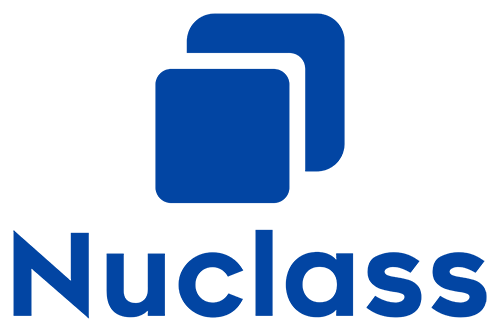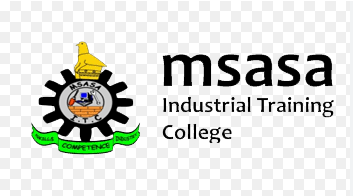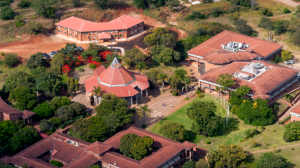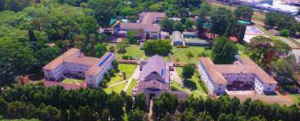The Essentials
Type of Institution: College
Fees per Semester: US$100.00 to US$400.00
Address: PO Box AY 182, Amby, Msasa, Harare, Zimbabwe
Phone Number: +263 – 4 – 486494
Principal: Mr. Ringisai Chinamasa
Number of students: 500+
Website: https://www.mitc.ac.zw/
Email: specialisedtechnology@mitc.ac.zw
Table Of Contents
- Overview
- Contact Details
- Address
- Location
- School Fees
- Courses & Programs
- Vacancies and Entry Requirements
- Logo
- Notable Alumni
- Pros and Cons
- Author’s Review
Overview
Msasa Industrial Training College is a renowned technical and vocational training institution in Zimbabwe, specializing in practical skills development across various industrial sectors.
The college plays a key role in training individuals in trades that are critical to the country’s manufacturing, construction, and mechanical industries. With a strong focus on hands-on learning, Msasa Industrial Training College equips students with the technical expertise needed to meet market demands.
Hands-on Learning Approach
Msasa emphasizes practical training, providing students with real-world experience in workshops and labs designed to simulate actual industrial environments. This ensures that students can directly apply the theoretical knowledge gained in class.
Industry Partnerships
The college collaborates with industries to ensure the curriculum remains relevant to current market needs and technological advancements. This also helps students secure internships and apprenticeships, boosting their employment prospects.
Flexible Learning Pathways
The institution offers programs for various skill levels, from beginner to advanced, catering to students seeking either foundational skills or specialization in a particular trade.
Accreditation and Certification
Graduates from Msasa Industrial Training College earn nationally recognized qualifications, including National Certificates and Diplomas, that enable them to pursue careers both locally and internationally.
Employment and Entrepreneurship
The college aims to produce graduates who are not only employable but also have the skills to start their own businesses in the industrial, mechanical, or construction sectors.
Facilities
Msasa Industrial Training College is equipped with modern workshops, machinery, and learning resources designed to provide a conducive environment for technical learning. The college invests in ensuring that its facilities are up-to-date and reflect the latest industry standards.
Admission
The college offers both full-time and part-time study options, allowing students to choose programs that suit their schedules. Admission into programs typically requires a minimum of five O-Level passes, including English, Mathematics, and Science.
Msasa Industrial Training College Contact Details
You can contact Msasa Industrial Training College via their landline, email or you can visit their website for further contact details.
Phone Number: +263 – 4 – 486494
Website: https://www.mitc.ac.zw/
Email: specialisedtechnology@mitc.ac.zw
Msasa Industrial Training College Address
PO Box AY 182, Amby, Msasa, Harare, Zimbabwe
Msasa Industrial Training College Location
Msasa Industrial Training College is located in Zimbabwe’s largest city, Harare in Msasa park on Harrow road and Falice Avenue.
Msasa Industrial Training College Fees
Msasa Industrial Training College fees is currently standing at US$100.00 to US$400.00 per term depending on the program you are studying. Please contact the institution or visit them to get the latest fees structure as it can change at any term or semester.
Msasa Industrial Training College Courses & Programs
Msasa Industrial Training College offers a variety of technical and vocational programs aimed at equipping students with industry-relevant skills.
Automotive Engineering:
Motor Vehicle Mechanics
Auto Electrical Engineering
Electrical Engineering:
Domestic Electrical Installation
Industrial Electrical Installation
Electrical Power Distribution
Mechanical Engineering:
Fitting and Turning
Machining and Tool Making
Maintenance and Repairs
Construction Trades:
Bricklaying and Plastering
Carpentry and Joinery
Plumbing
Painting and Decorating
Welding and Fabrication:
Welding Techniques
Metal Fabrication
Boiler Making:
Industrial Boiler Making
Steel Fabrication
Refrigeration and Air Conditioning:
HVAC Installation and Maintenance
Refrigeration Systems Installation and Repair
Diesel Plant Fitting:
Diesel Mechanics
Heavy Machinery Maintenance
Agricultural Mechanics:
Agricultural Machinery Maintenance and Repairs
Information Technology:
Basic Computer Skills
Computer Systems Maintenance
Solar Energy Installation and Maintenance:
Solar Power Systems
Renewable Energy Solutions
Msasa Industrial Training College Vacancies and Entry Requirements
Msasa Industrial Training College offers a variety of vacancies across its technical and vocational programs.
Vacancies
Vacancies are usually offered yearly on almost every course and program mentioned above. Visit the institute’s site or contact them via email and mobile call to get the latest and accurate vacancies available.
Entry Requirements
Academic Qualifications:
*A minimum of 5 O-Level passes including English, Mathematics, and Science for most technical courses.
*For advanced courses like National Diplomas, applicants may need to have completed a National Certificate or an equivalent qualification in the relevant trade.
Age Requirement:
Applicants must be at least 16 years old to enroll in most programs.
Experience (if applicable):
Some advanced programs may require prior work experience or practical training in the field, particularly for higher-level certificates or diplomas.
Medical Fitness:
Programs like welding, boiler making, and mechanics may require applicants to present proof of medical fitness due to the physically demanding nature of these trades.
Aptitude Tests or Interviews:
Some programs may require students to pass an aptitude test or attend an interview to evaluate their readiness and suitability for the course.
Practical Skills (for Advanced Courses):
For advanced courses like National Diplomas, students may need to have practical skills or previous industry experience to qualify.
Students should confirm specific requirements with the college as they may vary for different programs or levels of study.
Msasa Industrial Training College Logo
Below is the logo of Msasa Industrial Training College with excellent quality and it is available to download in PNG (transparent file) JPEG and PDF.
Msasa Industrial Training College Pros and Cons
Pros
Wide Range of Courses: The college offers a broad selection of programs across trades such as automotive engineering, electrical engineering, welding, and refrigeration, providing students with multiple career paths.
Hands-on Practical Training: Msasa places a strong emphasis on practical, hands-on training in industrial settings, equipping students with the skills needed to perform effectively in the workplace.
Industry-Relevant Programs: The programs are designed to meet the needs of Zimbabwe’s industrial and manufacturing sectors, ensuring graduates are job-ready.
Nationally Recognized Certifications: Students earn National Certificates and Diplomas, which are recognized across the country and abroad, enhancing employment opportunities.
Partnerships with Industries: Msasa collaborates with industry partners, allowing students to participate in internships or apprenticeships, which can lead to employment opportunities post-graduation.
Experienced Instructors: The college employs skilled and experienced instructors who are knowledgeable in their fields, providing quality training to students.
Entrepreneurial Skills: Many courses include components that prepare students to start their own businesses, fostering entrepreneurship in areas like welding, automotive mechanics, and carpentry.
Cons
Limited Advanced Specializations: While Msasa offers a wide range of foundational and intermediate courses, students seeking highly specialized or advanced training in niche areas may need to pursue further studies elsewhere.
Resource and Equipment Limitations: Like many vocational institutions, the availability of the most up-to-date equipment and resources can sometimes be limited, impacting the quality of hands-on training.
High Demand for Admission: Due to the college’s reputation, some programs may have limited vacancies or high competition for places, leading to potential waitlists.
Limited Campus Facilities: Non-academic facilities such as accommodation, recreation, and student welfare services may not be as comprehensive compared to larger institutions.
Geographical Limitations: Located in Harare, Msasa may not be easily accessible for students from distant regions unless they are willing to relocate.
Financial Constraints: While fees are generally affordable compared to other institutions, some students may still find it challenging to cover tuition and other costs, especially for full-time programs.
Author's Review
Msasa Industrial Training College stands out as a prominent institution dedicated to providing high-quality technical and vocational education in Zimbabwe. Its commitment to practical, hands-on training ensures that students are well-prepared to meet the demands of various industrial sectors.
The wide array of programs offered, from automotive and electrical engineering to welding and refrigeration, reflects the college’s ability to cater to diverse career interests and needs.
The college’s strong industry partnerships and emphasis on real-world skills enhance employability and entrepreneurial prospects for graduates. Nationally recognized certifications further bolster the value of the training received, offering students a competitive edge in the job market.
However, prospective students should be aware of certain limitations, including potential resource constraints, competition for admission, and geographical accessibility. Despite these challenges, Msasa Industrial Training College remains a solid choice for those seeking practical skills and industry-relevant training in Zimbabwe.
For individuals eager to pursue a career in technical fields, the college provides a valuable platform for achieving professional goals and contributing to the country’s industrial growth.




